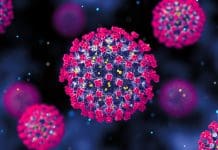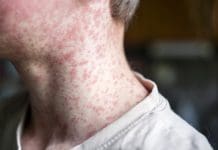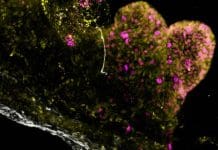There is a beacon of hope for patients with a rare genetic disorder called Werner Syndrome as researchers unveil a groundbreaking discovery: Nicotinamide riboside, a vitamin B3 derivative, reverses premature ageing
Werner Syndrome is a rare genetic disease that causes accelerated ageing and lifelong health complications. From their twenties, patients typically develop grey hair, hair loss, cataracts, diabetes, and other age-related conditions commonly associated with the elderly. Alongside premature ageing, patients will develop severe and untreatable skin ulcers, often requiring limb amputation, and face early death from cardiovascular diseases or cancer. The condition affects approximately nine per million people in Japan.
In a landmark trial, researchers from Chiba University have found that nicotinamide riboside, a derivative of vitamin B, safely boosts NAD+ levels, improves cardiovascular health, reduces skin ulcers, and helps protect kidney function in patients.
The findings of this groundbreaking study, which are detailed in the prestigious Aging Cell, a leading journal in the field of ageing research, have significant implications for the treatment of Werner Syndrome.
The effects of nicotinamide riboside on Werner Syndrome were largely unexplored
A 2019 study from the Bohr lab revealed that Werner syndrome (WS) patients and models have reduced levels of NAD+, a key molecule involved in energy production, DNA repair, and metabolism. NAD+ is a coenzyme found in all living cells and is involved in various metabolic processes. While direct NAD+ supplementation isn’t viable in mammals, its precursor, nicotinamide riboside (NR), has shown anti-ageing benefits in animals and positive effects in humans with inflammation and metabolic issues. However, the impact of NR on WS had not been studied in humans until the recent trial conducted by Chiba University.
A research team led by Associate Professor Masaya Koshizaka from the Centre for Preventive Medical Sciences at Chiba University, Department of Diabetes, Metabolism, and Endocrinology, Chiba University Hospital, Japan, conducted the world’s first rigorous clinical trial of NR in patients with Werner Syndrome.
The study involved a randomised, double-blind, placebo-controlled trial to evaluate the safety and effectiveness of NR supplementation. The researchers enrolled patients with Werner Syndrome in a crossover design, where participants received either a daily dose of NR or a placebo for 26 weeks and switched treatments for another 26 weeks.
The researchers tracked NAD+ blood levels, skin ulcer size, arterial stiffness, and kidney function.
Pioneering research into treatment options
The NR supplementation significantly increased NAD+ levels in the patient’s blood compared to the placebo. The supplement improved arterial stiffness, reduced skin ulcers, and appeared to slow the progression of kidney dysfunction with no serious side effects.
The researchers also found that metabolites in blood revealed that NR treatment reduced levels of creatinine and other compounds associated with kidney dysfunction. This suggests that NR may help protect kidney function, addressing another serious complication of Werner Syndrome.
Dr. Yasmeen Nkrumah-Elie, Global Director of Niagen Bioscience’s External Research Program called CERP, commented, “This study represents a significant step forward in understanding how NAD+ restoration with NR may help address the underlying biology of WS. By supporting cardiovascular, skin, and kidney health, NR shows the potential to improve the quality of life for patients with this devastating condition. We are proud to support Chiba University’s groundbreaking research as part of our ongoing commitment to advancing NAD+ science for rare and underserved diseases.”
The treatment’s multiple benefits across various organ systems indicate that NAD+ depletion may be a fundamental mechanism in WS that can be targeted therapeutically. “Our findings suggest NR could serve as a valuable treatment option for two major symptoms, arteriosclerosis and skin ulcers, as well as for preventing kidney function decline,” explained Dr. Koshizaka.
The results are significant as untreatable skin ulcers affect over 70% of patients with Werner Syndrome, which often leads to amputation.
The researchers noted that larger studies are needed to establish these findings further. However, the findings offer a promising glimpse into the future for patients with Werner Syndrome who have long-awaited effective treatment options.
The potential implications of this study’s findings extend beyond Werner Syndrome. The researchers hope that their work will accelerate studies on not only WS but also other premature ageing disorders and common age-related diseases. Ultimately, these findings could help to extend health span and improve quality of life in both patients and the broader population.








